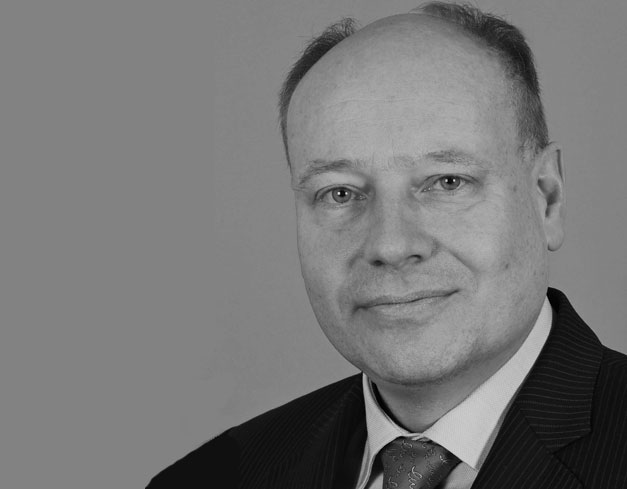"FUTURAS IN RES" conference: What's the IQ of AI?
Welcome and introduction
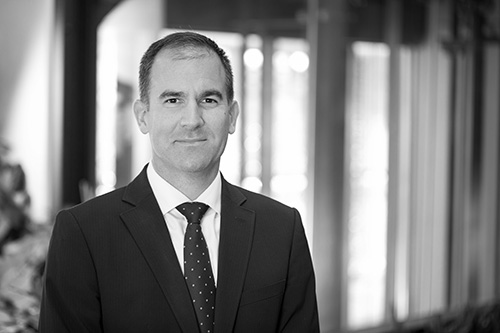
Prof. Dr. Raoul Klingner
Director Research
Fraunhofer-Gesellschaft
In 2016 Prof. Dr. Raoul Klingner was appointed Director of Research, reporting directly to the president of Fraunhofer-Gesellschaft. The division Research oversees all activities of the Fraunhofer Institutes in Germany. In 2010, Prof. Dr. Raoul Klingner became head of department of International Business Development of the Fraunhofer-Gesellschaft in Munich. The department manages the substantial international activities and networks of Fraunhofer abroad and supports institutionalized cooperation with leading foreign research entities in Europe, the Americas and Asia. As an expert in internationalization of R&D he is member in several advisory boards such as the advisory board of Baden-Württemberg International mbH (since 2014) and the board of the Bavarian University Center for Latin American BAYLAT (since 2012). He graduated at the University of Hamburg, Germany and received his PhD degree at ETH Zurich, chair of building physics. His professional career started in 2002 at the Swiss Federal Institute of Materials Research and Technology (EMPA) in Dübendorf near Zurich.
Keynote
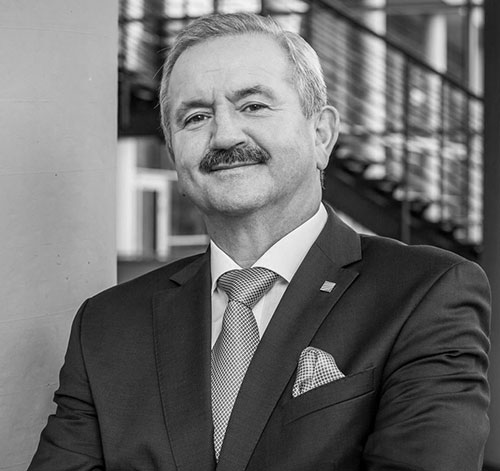
Prof. Dr.-Ing. Reimund Neugebauer
President of the Fraunhofer-Gesellschaft
In 2012, Professor Reimund Neugebauer took up the post of President of the Fraunhofer-Gesellschaft. He is also co-chair of the German federal government’s High-Tech Forum and on the executive boards of Plattform Industrie 4.0 and Germany’s Platform for AI, launched by the German Federal Ministry of Education and Research. From 1994 until 2012 he was the sole director of the Fraunhofer Institute for Machine Tools and Forming Technology IWU. Professor Neugebauer graduated from the Technische Universität Dresden with a degree in mechanical engineering and was awarded the academic degree of Doktor-Ingenieur habilitatus in 1991. He also holds ten honorary doctorates from respected universities, incl. Technical University of Munich, KU Leuven and South Africa’s Stellenbosch University.
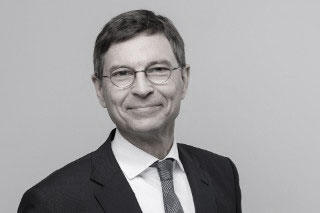
Keynote
Prof. Dr. Stefan Wrobel
Executive Director
Fraunhofer Institute for Intelligent Analysis and Information Systems IAIS
Since 2002, Prof. Dr. Stefan Wrobel is Director of the Fraunhofer IAIS and Professor of Computer Science at University of Bonn. He is also speaker of the “Fraunhofer Big Data and Artificial Intelligence Alliance”, director of the “Fraunhofer Center for Machine Learning” and senior expert of the EU High-Level Expert Group on AI. Professor Wrobel’s work is focused on intelligent algorithms and systems for the large-scale analysis of data. He is the author of a large number of publications on machine learning and an elected founding member of the “International Machine Learning Society”. He studied computer science and artificial intelligence in Bonn and Atlanta, Georgia/USA and obtained his PhD at the University of Dortmund.
Session 1: Artificial Reasoning
Moderated by the Fraunhofer Institute for Telecommunications, Heinrich Hertz Institute HHI, acclaimed international speakers present research and innovation that enable AI to arrive at conclusions in a sensible, reasonable and understandable way.
10:30 a.m.
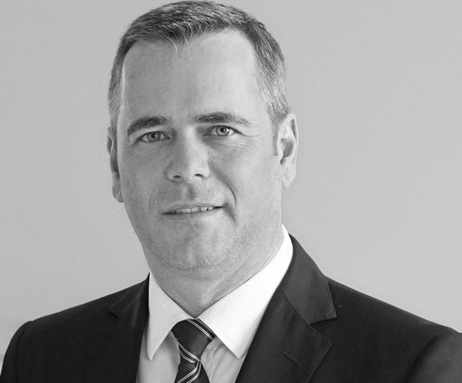
Prof. Dr.-Ing. Thomas Wiegand
Executive Director
Fraunhofer Institute for Telecommunications, Heinrich Hertz Institute, HHI
Prof. Dr.-Ing. Thomas Wiegand is heading the Fraunhofer Institute for Telecommunications, Heinrich Hertz Institute, HHI since 2014. He was one oft he main contributers in the development of the video coding standards H.264/MPEG-AVC- and H.265/MPEG-HEVC. Thomas Wiegand is one of the leaders of the ITU-T Video Coding Experts Group (VCEG) standardization committees and led the ISO/IEC Moving Picture Experts Group (MPEG) Video. As an editor, he wrote the 280-page H.264/MPEG AVC specification and more than 100 standardization proposals for technical contents of the standards H.264/MPEG-AVC- and H.265/MPEG-HEVC were written by him. In 2006, he was entrusted with co-supervising the ITU-T part of the JPEG standardisation.
Prof. Wiegand has studied electrical engineering at the Technical University of Wismar and the Technical University of Hamburg-Harburg. During his studies he went to the Japanese University Kobe and the University of California, Santa Barbara, where he also began his work on video coding and video transmission. He then worked as a research assistant at the Friedrich-Alexander-University Erlangen-Nuremberg and received his doctorate in 2000. During his doctorate, he also worked as a guest researcher at Stanford University and from 2011 to 2012 as a visiting professor. Prof. Wiegand’s research focuses on the processing, encoding and transmission of video signals, semantics in images and videos as well as representation, encoding and transmission of 3D worlds.
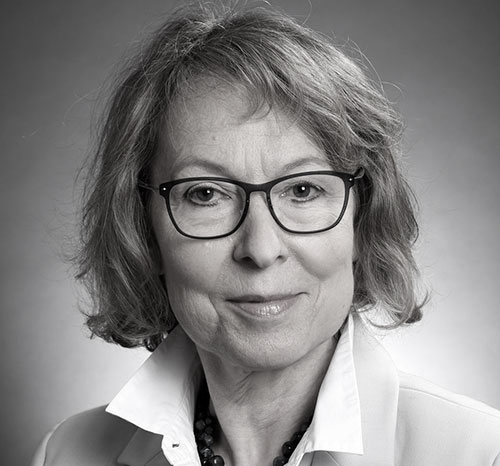
Prof. Dr. Susanne Biundo-Stephan
Prof. Dr. Susanne Biundo-Stephan
Director of the Institute of Artificial Intelligence
Ulm University
Susanne Biundo-Stephan is Professor of Computer Science and director of the Institute of Artificial Intelligence at Ulm University in Germany. She was the chair of the DFG-funded Transregional Collaborative Research Centre "Companion-Technology for Cognitive Technical Systems", a multi-disciplinary research endeavor that involved more than 70 scientists at two sites. Susanne Biundo-Stephan initiated and coordinated PLANET, the "European Network of Excellence in AI Planning" funded by the European Commission. She was a founding member of ICAPS, the main international conference and organization in the field of Automated Planning.
Since 2004, she is Fellow of the European Association for Artificial Intelligence (EurAI). In 2019, she was honored as one of the ten formative scientists in the history of AI in Germany. Her research interests include Automated Planning, Automated Reasoning, Knowledge Modeling, and Cognitive Systems.
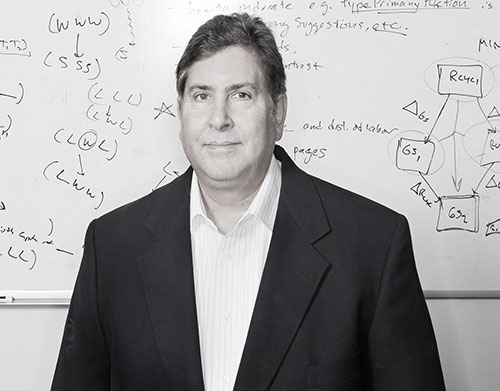
Dr. Douglas B. Lenat
CEO of Cycorp and founder of Cyc knowledge representation and reasoning platform Cycorp, Inc.; Austin Texas
Douglas Lenat is the CEO of Cycorp, Inc. of Austin, Texas, and is a prominent AI researcher. Cyc, the system developed by Cycorp, is the world's longest-lived, still active AI project attempting to assemble a comprehensive ontology and knowledge base that spans the basic concepts and "rules of thumb" about how the world works, with the goal of enabling AI applications to perform human-like reasoning and be less "brittle" when confronted with novel situations that were not preconceived. Already in 1976 he was awarded the biannual IJCAI Computers and Thought Award for creating the machine learning program, AM. He has worked on symbolic machine learning, knowledge representation and "cognitive economy". Lenat was one of the original Fellows of the AAAI, and is the only individual to have served on the Scientific Advisory Boards of both Microsoft and Apple.
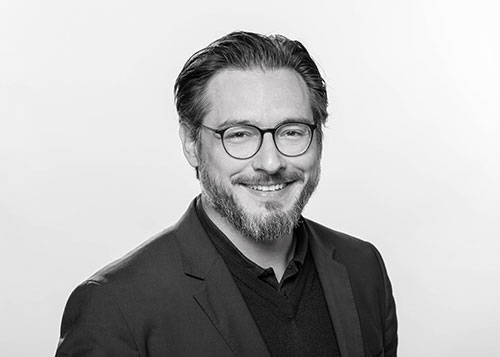
Prof. Dr.-Ing. Sami Haddadin
Technical University of Munich (TUM)
Prof. Sami Haddadin is Director of the Munich School of Robotics and Machine Intelligence at the Technical University Munich (TUM) and holds the Chair of Robotics and System Intelligence. His research interests include intelligent robot design, machine learning for physical systems, collective intelligence, learning robots, autonomous task planning, human-robot interaction, nonlinear control, optimal control, human neuromechanics and prosthetics and robot safety. Prof. Haddadin holds the German Future Prize of the Federal President and the Leibniz Prize. He is expert member of the AI enquete commission of the German Bundestag and member of the EU high-level expert group on artificial intelligence.
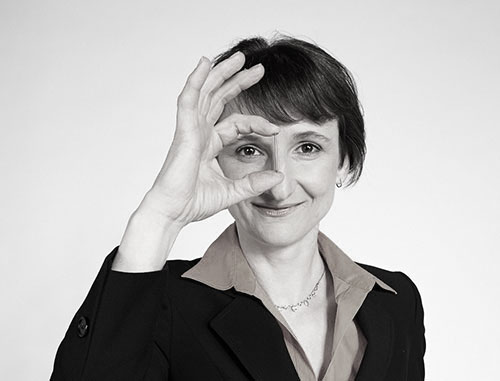
Prof. Dr. Dr. Heike Riel
IBM Fellow, Director IoT Technology and Solutions
IBM Research, Zürich
Dr. Heike Riel is a distinguished scientist known for advancing the frontiers of information technology through the physical sciences. She is IBM Fellow and Department Head of Science & Technology at IBM Research. She is responsible for leading the research agenda of the Science & Technology department aiming to create scientific and technological breakthroughs in Physics of Artificial Intelligence, Quantum Computing and Technologies, Nanoscience and Nanotechnology, Precision Diagnostics and Smart System Integration. Dr. Riel is a distinguished expert in nanotechnology and nanosciences and focuses her research on advancing the frontiers of information technology through the physical sciences. Her research has contributed to advancements in OLED display technology, molecular electronics and semiconductor nanoscale materials and devices. Her recent research interests include topological states of compound semiconductor nanowires for quantum information processing. In 2013, Heike Riel was named IBM Fellow, the company's highest technical distinction, and inducted into IBM’s Academy of Technology. She studied physics at the University of Erlangen-Nuremberg (Germany) and received a PhD from the University of Bayreuth (Germany) in 2003 for her work on optimizing multilayer organic light-emitting devices performed at IBM Research. In 2011, Heike graduated with an MBA from Henley Business School.
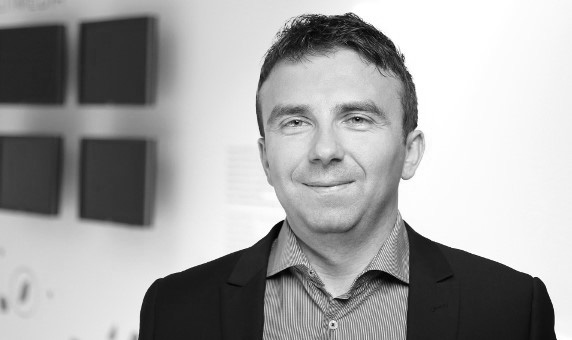
Dr. Wojciech Samek
Head of Machine Learning Group
Fraunhofer Institute for Telecommunications, Heinrich Hertz Institute, HHI
Dr. Wojciech Samek has founded and is heading the Machine Learning Group at the Fraunhofer Institute for Telecommunications, Heinrich Hertz Institute, HHI since 2014. He studied computer science at Humboldt University of Berlin, Heriot-Watt University and University of Edinburgh from 2004 to 2010 and received the Dr. rer. nat. degree with distinction (summa cum laude) from the Technical University of Berlin in 2014. In 2009 he was visiting researcher at NASA Ames Research Center, Mountain View, CA, and in 2012 and 2013 he had several short-term research stays at ATR International, Kyoto, Japan. He was awarded scholarships from the European Union's Erasmus Mundus programme, the German National Academic Foundation and the DFG Research Training Group GRK 1589/1. He is associated with the Berlin Big Data Center and the Berlin Center for Machine Learning, is an editorial board member of Digital Signal Processing and PLOS ONE, and was organizer of various deep learning workshops. He received the best paper award at the ICML'16 Workshop on Visualization for Deep Learning and the ICML'19 Workshop on On-Device Machine Learning & Compact Deep Neural Network Representations and has authored more than 100 journal and conference papers, predominantly in the areas deep learning, interpretable machine learning, robust signal processing and computer vision.
Session 2: Artificial Communication
Moderated by the Fraunhofer Institute for Intelligent Analysis and Information Systems IAIS, acclaimed international speakers present research and innovation that enable AI to communicate with humans in a natural and intelligible way.
1:45 p.m.
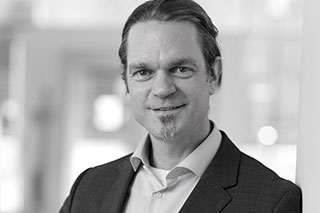
Prof. Dr. Christian Bauckhage
Lead Scientist Machine Learning
Fraunhofer Institute for Intelligent Analysis and Information Systems IAIS
Prof. Dr. Christian Bauckhage is a professor of computer science at the University of Bonn, scientific director of the Fraunhofer Center for Machine Learning and lead scientist at Fraunhofer IAIS. He obtained a PhD in computer science from Bielefeld University, Germany, was a postdoctoral researcher at the Centre for Vision Research in Toronto, and worked as a senior research scientist at Deutsche Telekom Laboratories in Berlin. His research focuses on efficient and informed algorithms for data mining, pattern recognition, and machine learning. Practical applications of his research can be found in areas as diverse as finance, production, and medicine. He is a frequent public speaker and passionate proponent of open science.

Dr. Ivana Kruijff-Korbayová
Senior Researcher DFKI
German Research Center for Artificial Intelligence
Language Technology and Multilinguality Lab (MLT)
Talking Robots Group
Dr. Ivana Kruijff-Korbayová is a senior researcher and project leader in the Language Technology and Multilinguality Lab of the German Research Center for Artificial Intelligence in Saarbruecken, Germany, where she is leading the Talking Robots Group. Her research includes various topics in discourse and dialogue modeling and context-sensitive natural language processing for dialogue systems and human-robot interaction. She has more than 70 peer-reviewed publications and has been involved in numerous national and international research projects, often in leading functions. She holds a degree in Electrical Engineering from the Czech Technical University (1992) and a PhD in mathematical linguistics from Charles University (1998), Prague, Czech Republic. 1999-2000 she held a British Academy Visiting Fellowship and a Royal Society / NATO Postdoctoral Fellowship for research in discourse semantics at the University of Edinburgh, U.K. 2001-2010 she held a research position at the Department of Computational Linguistics and Phonetics, Saarland University, Saarbruecken.
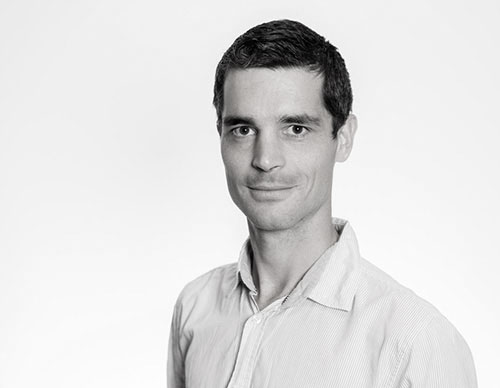
Jeremie Lecomte
Alexa AI, Amazon
Jeremie Lecomte is Senior Technical Program Manager in the Alexa Artificial Intelligence team working on conversation AI. Driving development of next generation core AI for conversational understanding, unsupervised learning and deep insights in Alexa. “Here in Alexa, we're building the operating system of the future. We foresee a time in which people no longer hunch over their desks staring at a screen, a time in which human/computer interactions are as intuitive and simple as a conversation between two old friends. To achieve our vision, we implement cutting edge techniques in the fields of machine learning, deep neural networks, automatic speech recognition, and natural language understanding more broadly, we're building artificial intelligence.“
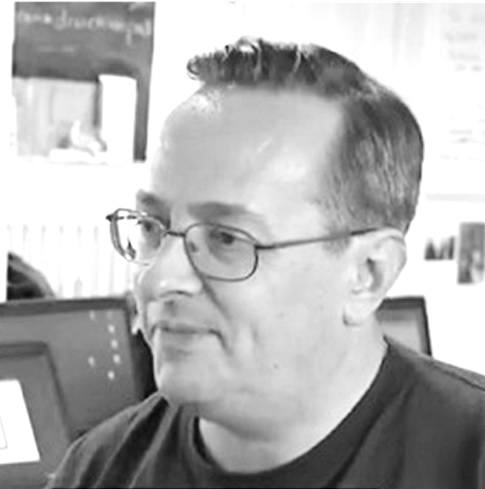
Steve Worswick
Senior Artificial Intelligence Designer at Pandorabots and creator of Mitsuku chatbot
Pandorabots Inc, California
Steve Worswick is the creator and developer of the Mitsuku chatbot. Mitsuku is a record breaking 5 times winner of the Loebner Prize Turing Test and regarded as the world’s most humanlike conversational AI. Steve is the Senior Artificial Intelligence Designer with Pandorabots.com and as the 2019 award holder of the Loebner Prize, Steve is currently regarded as the world’s best chatbot creator.
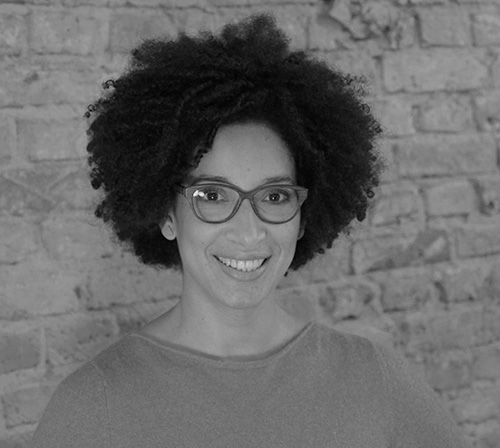
Kenza Ait Si Abbou Lyadini
Senior Manager Robotics & Artificial intelligencey
Robotics and Artificial intelligence Hub Deutsche Telekom
Kenza is Senior Manager for Robotics and Artificial Intelligence, driving the RPA and AI solutions within the IT department of Deutsche Telekom. She leads the consulting of the Robotics and AI hub and her role resides in helping the business units of Deutsche Telekom identify automation and AI usecases and develop the best solutions to cover their automation needs. She was born in Morocco, studied Telecommunications Engineering in Spain. A Master in Project Management followed in Germany, then Chinese as a foreign language in China. After spending some years developing hardware in Spain and a stopover in Shanghai during the world Expo in 2010, Kenza joined T-Systems in Berlin in 2011. She has a track record managing big projects, such as ICT outsourcing tenders, agile transformations, new IT applications or new network architectures for Deutsche Telekom. In December 2018 Kenza was awarded with the Digital Female Leader Award in the category IT/Tech, and in April 2019 with the Engineer Power Women Award from Deutsche Messe, for her engagement and commitment for more Diversity in the IT and AI world.
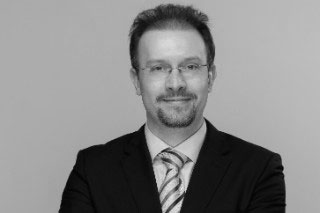
Prof. Dr. Jens Lehmann
Lead Scientist Conversational AI and Knowledge Graphs
Fraunhofer Institute for Intelligent Analysis and Information Systems IAIS
Prof. Dr. Jens Lehmann is lead scientist for knowledge graphs and conversational AI at Fraunhofer IAIS. His research interests involve machine learning, question answering & dialogue systems, distributed computing and knowledge modelling. Prof. Lehmann authored more than 120 articles in international journals and conferences winning 12 best paper awards. His articles are cited more than 15000 times. In his work, he unites knowledge modelling with statistical methods to build new hybrid AI approaches. For instance, he is investigating conversational AI methods, that are used in chatbots or speech assistants, which can use knowledge graphs to give more informative and precise answers. Prof. Lehmann studied Computer Science at TU Dresden and Bristol and did his PhD at the University of Leipzig with research visits in Oxford. He led a large research group at the University of Leipzig before being appointed as professor at the University of Bonn and Fraunhofer IAIS.
Session 3: Artificial Perception
Moderated by the Fraunhofer Institute of Optronics, System Technologies and Image Exploita-tion IOSB, acclaimed international speakers present research and innovation that enable AI to perceive and make sense of its surroundings.
4:30 p.m.
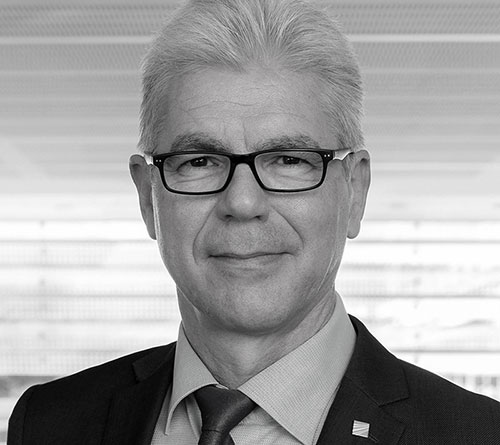
Prof. Dr.-Ing. habil. Jürgen Beyerer
Executive Director
Fraunhofer Institute for Optronics, System Technologies and Image Exploitation IOSB
Since 2004, Professor Beyerer is executive director of Fraunhofer IOSB. He also holds the chair of Interactive Real-Time Systems (IES) at the Faculty of Computer Science of the Karlsruhe Institute of Technology (KIT). Professor Beyerer’s research topics include automatic visual inspection and image evaluation, pattern recognition and signal and information processing. He is also speaker of the Fraunhofer Group for Defense and Security and of the competence center ROBDEKON, an initiative of the German Ministry of Education and Research for developing robot systems for dangerous environments. Professor Beyerer is author of the prominent scientific textbooks “Machine Vision” and “Pattern Recognition”.
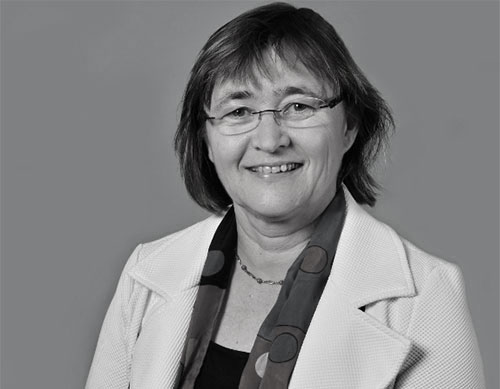
Prof. Dr.-Ing. Tanja Schultz
Director of the Cognitive Systems Lab Faculty of Mathematics/Computer Science University of Bremen
Prof. Dr.-Ing. Tanja Schultz is head of the Cognitive Systems Lab (CSL) and professor at the Department of Mathematics/Computer Science at the University of Bremen.
The Cognitive Systems Lab (CSL) focuses on human-centered technologies and applications based on biosignals, such as capturing, recognizing, and interpreting speech, muscle, and brain activity. In the area of speech processing the CSL conducts research on algorithms and tools to rapidly adapt speech and language processing systems to new domains and languages. Further research investigates the interpretation of biosignals for the purpose of intuitive and efficient human-machine interfaces. Currently we develop a variety of interfaces and applications based on electromyographic, electroencephalic and biomechanic signals.
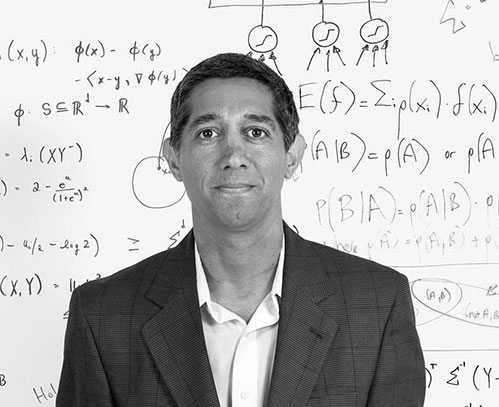
Dr. Babak Hodjat
VP Evolutionary AI at Cognizant, San Francisco
Dr. Babak Hodjat is VP of Evolutionary AI at Cognizant, and former co-founder and CEO of Sentient, responsible for the core technology behind the world’s largest distributed artificial intelligence system. Dr. Babak was also the founder of the world's first AI-driven hedge-fund, Sentient Investment Management. Dr. Babak is a serial entrepreneur, having started a number of Silicon Valley companies as main inventor and technologist. Prior to co-founding Sentient, Dr. Babak was senior director of engineering at Sybase iAnywhere, where he led mobile solutions engineering. Prior to Sybase, Dr. Babak was co-founder, CTO and board member of Dejima Inc.. Dr. Babak is the primary inventor of Dejima’s patented, agent-oriented technology applied to intelligent interfaces for mobile and enterprise computing – the technology behind Apple’s Siri. Dr. Babak is a published scholar in the fields of Artificial Life, Agent-Oriented Software Engineering, and Distributed Artificial Intelligence, and has 31 granted or pending patents to his name. He is an expert in numerous fields of AI, including natural language processing, machine learning, genetic algorithms, distributed AI, and has founded multiple companies in these areas. Dr. Babak holds a PhD in Machine Intelligence from Kyushu University, in Fukuoka, Japan.
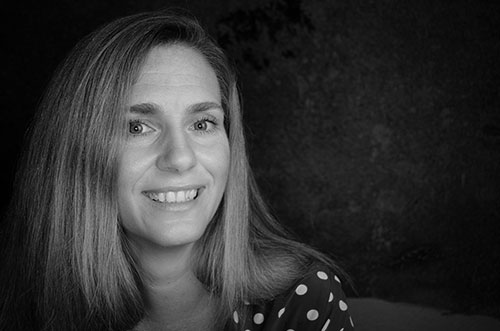
Jana Eggers
CEO of Nara Logics, Inc.
Jana Eggers is CEO of the neuroscience-inspired artificial intelligence platform company, Nara Logics. She’s an experienced tech exec focused on inspiring teams to build great products. She’s started and grown companies, and led large organizations at public companies. She's active in customer-inspired innovation, the artificial intelligence industry, Autonomy/Mastery/Purpose-driven leadership, as well as running and triathlons. She’s held technology and executive positions at Intuit, Blackbaud, Los Alamos National Laboratory (computational chemistry and super computing), Basis Technology (internationalization technology), Lycos, American Airlines, Spreadshirt (ecomm), and start-ups that you’ve never heard of.
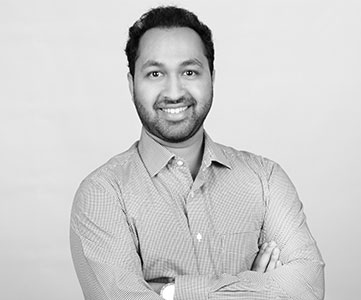
Chaitanya Dhumasker
CEO and Co-founder at MonitorFish
MonitorFish develops smart diagnostic systems for intelligent real-time monitoring of fish health and conditions in aquacultures. The Berlin-based company employs a multicultural team of innovation-driven experts offering cognitive AI capabilities in fish farming. The company provides local fish farmers with the precise action plan in real-time to maintain the highest quantity and quality fish and to reduce fish mortality in ponds so that the farmers’ investments are secured.
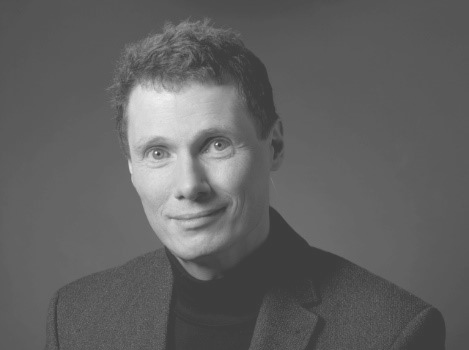
Dr. Wolfgang Hübner
Lead Scientist Video Content Analysis
Fraunhofer Institute for Optronics, System Technologies and Image Exploitation IOSB
Dr. Hübner is head of the Video Content Analysis group at the Fraunhofer Institute for Optronics, System Technologies and Image Exploitation IOSB. He received his Ph.D. in computer science in 2005 from the University of Bremen. Before and after that he worked at the Cognitive Neuroscience Lab at the University of Tübingen on different publicly funded research projects in the fields of e-Learning in cognitive sciences, cognitive robotics, and cognitive vision applications. His main research interests include machine learning applications, especially in the context of cognitive systems, interactive systems and automated signal analysis.
Day two, November 22, 2019
Opening addresses | 9:00 a.m.
Welcome and introduction

Prof. Dr. Raoul Klingner
Director Research
Fraunhofer-Gesellschaft
In 2016 Prof. Dr. Raoul Klingner was appointed Director of Research, reporting directly to the president of Fraunhofer-Gesellschaft. The division Research oversees all activities of the Fraunhofer Institutes in Germany. In 2010, Prof. DR. Raoul Klingner became head of department of International Business Development of the Fraunhofer-Gesellschaft in Munich. The department manages the substantial international activities and networks of Fraunhofer abroad and supports institutionalized cooperation with leading foreign research entities in Europe, the Americas and Asia. As an expert in internationalization of R&D he is member in several advisory boards such as the advisory board of Baden-Württemberg International mbH (since 2014) and the board of the Bavarian University Center for Latin American BAYLAT (since 2012). He graduated at the University of Hamburg, Germany and received his PhD degree at ETH Zurich, chair of building physics. His professional career started in 2002 at the Swiss Federal Institute of Materials Research and Technology (EMPA) in Dübendorf near Zurich.
Keynote
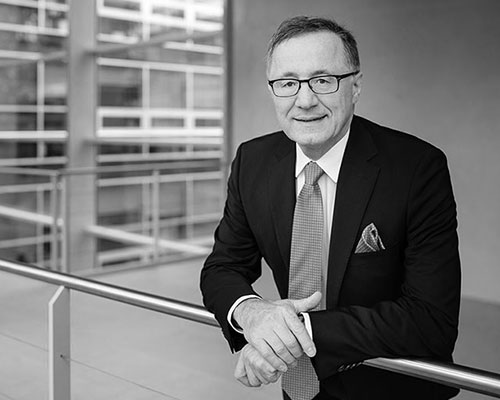
Prof. Dr.-Ing. Wilhelm Bauer
Executive Director
Fraunhofer Institute for Industrial Engineering IAO
Professor Bauer is also chairman of the Fraunhofer Group for Innovation Research and a member of numerous committees as well as advisor to policymakers and the business community. As executive director of Fraunhofer Institute for Industrial Engineering IAO, Professor Bauer leads a research institution with some 650 employees. He is responsible for research and implementation projects in the areas of innovation research, technology management, living and working in the future and smarter cities.
He has authored more than 350 scientific and technical publications and is an associate lecturer at the Universities of Stuttgart and Hannover. Above this, he has been honored with the “Übermorgenmacher” distinction for innovators by the German state of Baden-Württemberg.
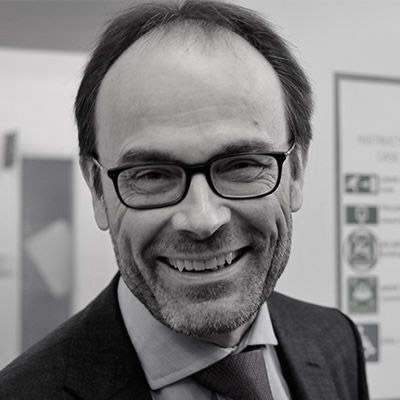
Dr. Juha Heikkilä
Head of the Robotics and Artificial Intelligence unit in the European Commission Directorate-General for Communications Networks, Content and Technology
Since 2014 Dr. Juha Heikkilä has been the Head of the Robotics and Artificial Intelligence unit in the European Commission Directorate-General for Communications Networks, Content and Technology, which develops the Commission policy and activities in Artificial Intelligence. The Commission has been funding a multidisciplinary programme on Cognitive Systems, Robotics and AI since 2004, focusing on smart robots and artificial systems, and in 2014 it set up a Public-Private Partnership in Robotics. Previously, Dr. Juha Heikkilä was involved in computational and corpus linguistic research at the University of Helsinki, and he has a PhD in Linguistics from the University of Cambridge.
Session 4: Artificial Consciousness
Moderated by the Fraunhofer Institute for Photonic Microsystems IPMS, acclaimed international speakers discuss the question in how far insights from neuroscience can improve capabilities of AI?
10:00 a.m.
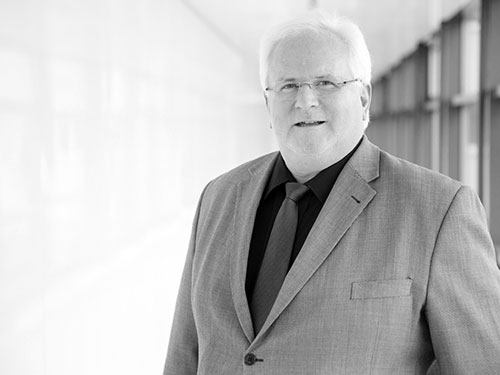
Prof. Dr.-Ing. Hubert Karl Lakner
Executive Director
Fraunhofer Institute for Photonic Microsystems IPMS
Since January 2003, Professor Hubert Lakner is the executive director of Fraunhofer IPMS. In parallel, he has been appointed Professor for “Optoelectronic Devices and Systems” in the Department of Electrical Engineering and Information Technology at the Technical University Dresden. Since January 2011 he is also chairman of the Board of Directors of the Fraunhofer Group Microelectronics. Hubert Lakner (born 1958) received his diploma-degree in physics at the Eberhard-Karls-Universität in Tübingen in 1986. After a year in industry he joined the Gerhard-Mercator-Universität in Duisburg working in the field of nanocharacterization of mesoscopic semiconductor structures. There he received his Dr.-Ing. in 1993. Professor Lakner is also chairman of the steering committee of the Research Fab Microelectronics Germany and Chairman of the Fraunhofer Group for Microelectronics.
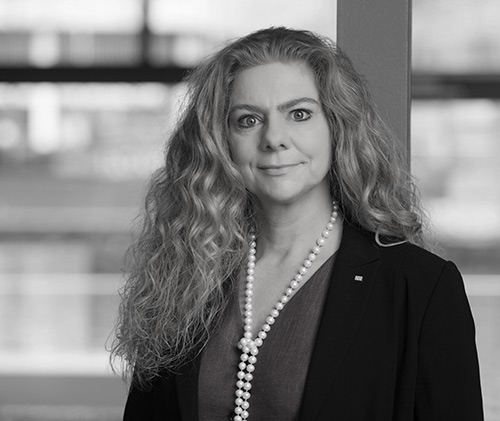
Prof. Dr. Sabina Jeschke
Member of the Management Board for Digitalization and Technology
Deutsche Bahn AG
Prof. Sabina Jeschke is a member of the Executive Board of Deutsche Bahn as well as professor of mechanical engineering at RWTH Aachen University in Germany. Her research interests include AI, robotics and automation technology, autonomous and semi-autonomous traffic systems, international logistics, Industrie 4.0/IoT, multi-agent systems, cognitive computing) and human-machine interaction. She is also interested in assessing the implications of AI on society as well as innovation research in order to maximize the potential of AI for companies and customers.
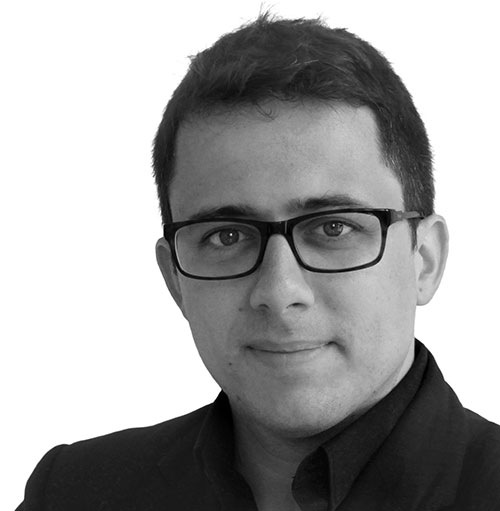
Prof. Dr. Moritz Helmstaedter
Managing Director, Max Planck Institute for Brain Research, Frankfurt
Moritz Helmstaedter is the Managing Director of the Max Planck Institute for Brain Research in Frankfurt. His work aims at pushing the frontiers of Connectomics, an emerging research field occupied with mapping neuronal networks in the brain at unprecedented scale and resolution. His interests lie in the relation between artificial and biological intelligence, and the search for connectomic phenotypes of psychiatric disorders. Before, he was a group leader at the Max Planck Institute of Neurobiology in Munich (2011-2014). Born in Berlin in 1978, Moritz studied medicine and physics in Heidelberg, where he also completed his doctoral thesis with Nobel laureate Bert Sakmann at the Max Planck Institute for Medical Research.
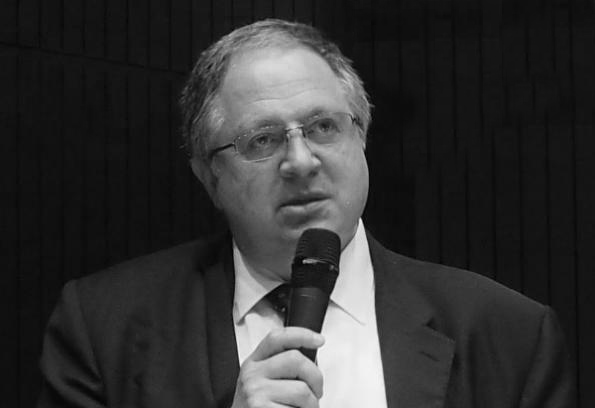
Dr. Carlo Reita
Director of Strategic Partnerships and Planning in the CTO Office of CEA-Leti, Grenoble (France)
Dr. Carlo Reita is currently Director of Strategic Partnerships and Planning in the CTO Office of CEA-Leti, (Grenoble, France), in charge of the relations with major RTOs and of the actions for the support of nanoelectronics in the future EU R&D plans. In the last few years he has been acting as “Sherpa” of the LETI Director for EU documents, discussions, events preparation, and representing LETI representative to Japanese and Chinese authorities as well as constructing the overall materials, devices, integration and design enablement roadmap for computing.
Born in Rome (Italy) in 1960, he holds a Laurea di Dottore in Fisica from Rome University “La Sapienza”. After two years as Second Lieutenant in the Italian Air Force, he carried out research in electronic devices and circuits at at Istituto di Elettronica dello Stato Solido of the CNR (Italy), GEC-Marconi Hirst Research Centre in Wembley (UK), Laboratoire Centrale des Recherches of Thomson-CSF in Orsay (France). He spent two years at Cambridge University Engineering Department as Royal Society Industrial Fellow. He held various management positions at Photronics finally becoming European R&D Director. In 2005 he joined CEA-Leti as CMOS Advanced Devices Program Manager. His major scientific interests have been thin film materials for large area electronics, lithography, advanced devices for computation and neuromorphic circuits and architectures. Between 2016 and 2019 he has been the initiator and coordinator of the EU H2020 project NeuRAM3 aiming at using novel technologies like FDSOI, Resistive RAMs, 3D integration and TFT to fabricate bioinspired circuits for embedded artificial intelligence applications.
He is author or co-author of over 80 refereed papers, several invited and review papers, two books chapters in the fields of electronic devices and lithography, participated in a number of panels (IEDM, SSDM, …). He served as member of national and international reviews and advisory committees.
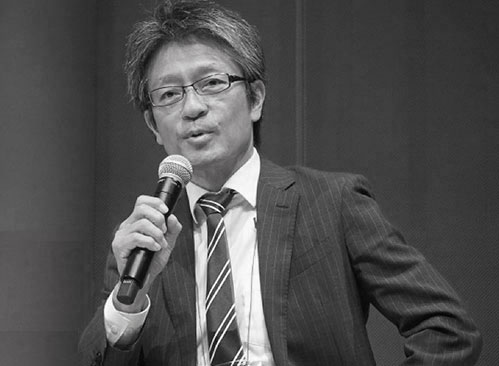
Dr. Hiroshi Yamakawa
Chairperson of The Whole Brain Architecture Initiative, Tokyo
Dr. Yamakawa is an AI researcher interested in brain science. His specialty includes brain-inspired Artificial General Intelligence (AGI), concept formation, neurocomputing, and opinion aggregation technology. He is a former Chief Editor of the Japanese Society for Artificial Intelligence (JSAI ) and co-organizer of AEGAP workshop of IJCAI 2018. Dr. Yamakawa received an MS in physics and Ph.D. in engineering from the University of Tokyo in 1989 and 1992 respectively and joined Fujitsu Laboratories Ltd. in 1992. He founded The Whole Brain Architecture Initiative, Japan and currently holds the position of chairman. Dr. Yamakawa is a visiting professor of the University of Electro-Communications and co-author of the Japanese books “Religion and life” and “The Constitutional Theory of the AI Era”.
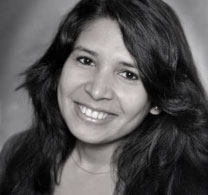
Dr. Alpha Tom Kodamullil
Lead Scientist Bioinformatics
Fraunhofer Institute for Algorithms and Scientific Computing SCAI
Dr. Alpha Tom Kodamullil works as researcher at the department of bioinformatics at Fraunhofer SCAI. Alpha has many years of experience in bioinformatics, especially in the field of big data analysis and knowledge mining in neurodegenerative diseases. Apart from working as a scientist at Fraunhofer SCAI, Alpha also co-founded a "knowledge modelling" company in India called Causality Biomodels. Alpha is also involved in many research projects and collaborations with European and US partners, and has many publications in high ranking peer-reviewed journals.
Session 5: Artificial Empathy
Moderated by the Fraunhofer Institute for Integrated Circuits IIS, acclaimed international speakers present research and innovation that enable AI to understand human needs, intentions and emotions.
1:15 p.m.
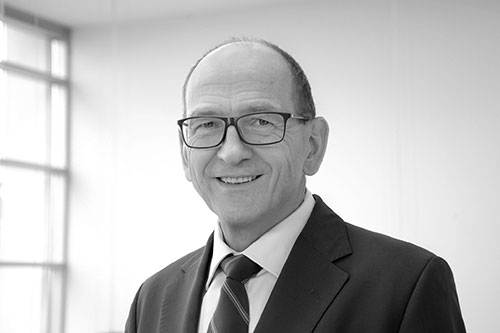
Prof. Dr.-Ing. Albert Heuberger
Executive Director
Fraunhofer Institute for Integrated Circuits IIS
Since 2011, Professor Albert Heuberger is executive director of Fraunhofer IIS. He also holds the chair for information technology at the Friedrich-Alexander-Universität Erlangen-Nürnberg. His research interests are communication technologies for Internet of Things and 5G communications. He oversees numerous technology development activities for cognitive sensor technologies for mobility, industrial control and health applications.
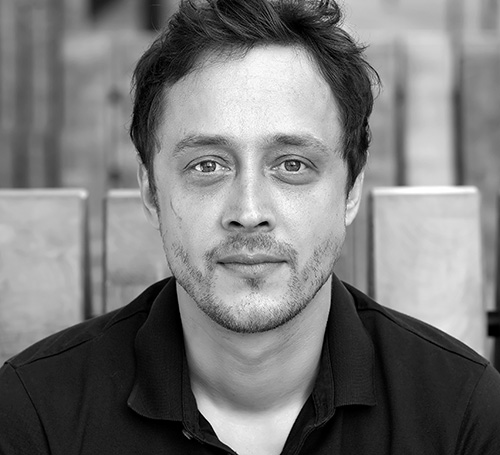
Christian Mio Loclair
Creative Director at Waltz Binaire, new media artist and computer scientist, Berlin
Can AI be a generator for a sustainable and meaningful paradigm shift? Using cutting edge technology and Artificial Intelligences in interactive installations, audio-visual experiences, visual narratives and dance performances, he continuously explores the harmony and tension of the encounter of humans and machines. Mio is publishing his work on digital installations, unexpected galleries and theatre stages around the world for commercial and independent projects.
Furthermore Mio spoke about the philosophy of his work at the United Nations, MIT (Boston), Centre Pompidou (Paris) and Frauenkirche (Dresden), among others. His work has also been featured by companies such as Google, IBM, Mercedes Benz, BMW and VW and presented at museums such as Ars Electronica, Today Art Museum Beijing and Centre Pompidou. Mio is winner of the honorary mention at Ars Electronica 2017 and wrote scientific papers about human computer interaction.
Mio studied Computer Science at the University Potsdam and Hasso Plattner Institute, specializing in Media Engineering and graduated in Human-Computer Interaction. His computational research involves computer vision, human-computer interaction, gestural real-time interaction, tactile feedback systems, data science, geometric programming, generative design, and Machine Learning.
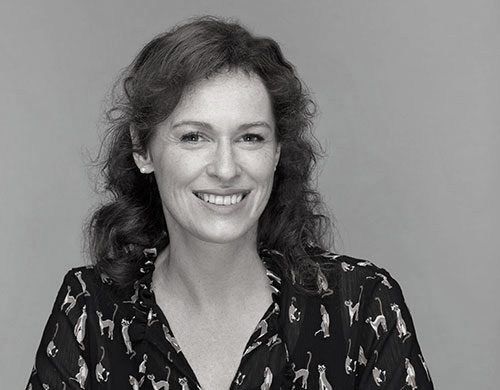
Dagmar Schuller
CEO and Co-Founder, audEERING GmbH
Dagmar Schuller is an expert in digital strategy and innovation. For more than 10 years she has been involved with (emotional) artificial intelligence, machine learning and big data. At audEERING Dagmar Schuller shapes the strategy, business development and operations. The tech company is innovation leader in the field of intelligent audio analysis and artificial emotional intelligence. Through innovative machine learning and big data processes, audEERINGs technology analyses the acoustics of surroundings, speech and more than 50 mental states of the speaker. With a lot of passion and dedication Schuller led audEERING from a startup to a multi-million company with currently 60 employees at two locations in Munich and Berlin.
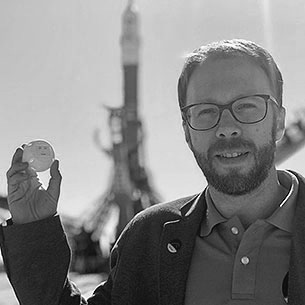
Dr. Christian Karrasch
Scientific Expert and technical manager for ISS utilisation at the DLR Space Administration
Christian Karrasch studied physics at the University of Bonn and earned his doctorate at Ruhr University Bochum. Together with his colleagues from the ISS Human Spaceflight department, he provides support for the German contributions to the horizons mission of Alexander Gerst. Karrasch is also the project manager responsible for CIMON (Crew Interactive Mobile Companion). CIMON is an astronaut assistance system funded by the DLR Space Administration in Bonn, developed by Airbus together with IBM, which can see, hear, understand, speak - and fly. It is an initial technology demonstrator that Alexander Gerst tested during his work on the 'horizons' mission in 2018. In the medium term, CIMON will also assist other astronauts operating in the microgravity environment of the ISS. Voice-controlled document access is one of the major advantages of CIMON, because astronauts can keep both hands free for their work.
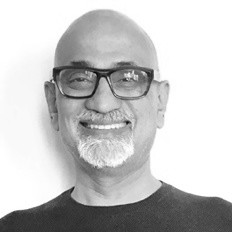
Dr. P. Anandan
CEO at Wadhwani AI, India
Researcher in computer vision and AI
Wadhwani Institute for Artificial Intelligence is a nonprofit independent research institute with mission of AI for social good. Founded by tech entrepreneurs Romesh and Sunil Wadhwani, Wadhwani AI will develop AI based solutions in a variety of domains of societal importance, including agriculture, health, education, and infrastructure. The institute will also be a hub for collaboration between top global AI researchers, social sector organizations, and governments.
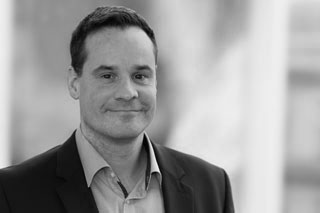
Dr. Jens-Uwe Garbas
Lead Scientist Image Analysis and Pattern Recognition
Fraunhofer Institute for Integrated Circuits IIS
Dr. Jens Garbas holds a doctor in electrical engineering from Friedrich-Alexander-University Erlangen-Nürnberg. He joined Fraunhofer 2010 and is now heading the "Campus of the Senses", a joint initiative of Fraunhofer IVV and IIS dedicated to the digitization of human senses. He is also responsible for industrial and public research projects as well as software licensing in the area of real-time computer vision, affective computing, and facial analysis. In 2017 he completed the Fraunhofer Research Manager program, extending his qualifications and expertise in the area of entrepreneurship, organization, corporate governance, strategic development, and open innovation.
